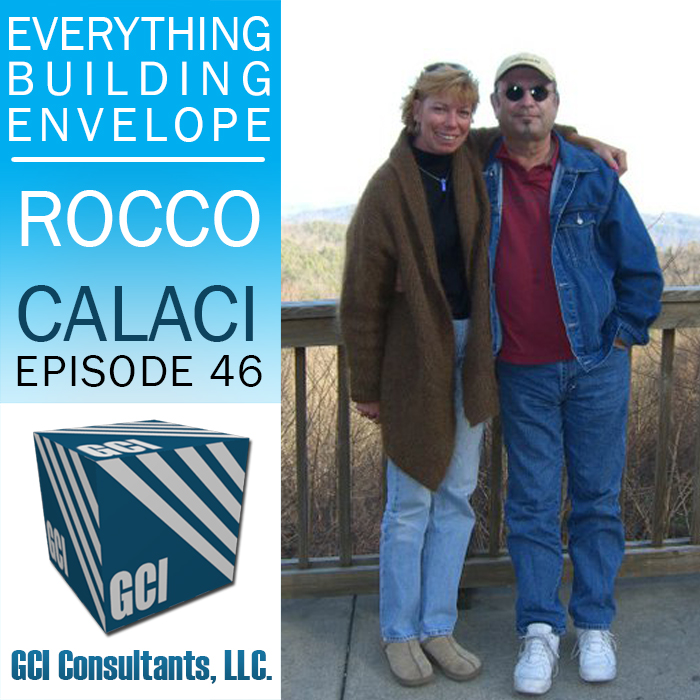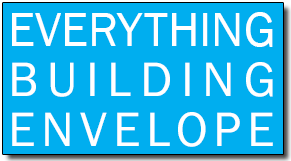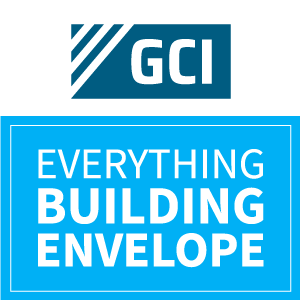
About The Everything Building Envelope Podcast: Everything Building Envelope℠ is a dedicated podcast and video forum for understanding the building envelope. Our podcast series discusses current trends and issues that contractors, developers and building owners have to deal with related to pre and post construction. Our series touches on various topics related to water infiltration, litigation and construction methods related to the building envelope.
https://www.everythingbuildingenvelope.com
*** Subscribe to the show and leave us a Review on ITunes!
Derek: Welcome to the Everything Building Envelope podcast. My name is Derek Segal. I’m a building envelope consultant with GCI. I’m excited about today’s topic, which is forensic meteorology. And I’d like to take a moment to welcome, Rocco Calaci, with LRC Services. Welcome, Rocco.
Rocco: Well, thank you very much, Derek.
Derek: For our guests, Rocco, and our listeners, would you spend a couple of minutes telling us a little bit about your history, your training and how you landed up as the head of a top-notch forensic meteorology organization?
Rocco: Sure. I had a 20-year career in the United States Air Force as a meteorologist, and I was fortunate enough also to be an instructor of meteorology for the Department of Defense.
And, in those 20 years, I worked at multiple high-profile locations. And near the end of my career, my retirement I was fortunate enough to be the manager of the largest military weather station at Eglin Air Force Base, Florida.
After my retirement, I got heavily involved in the development of Nexrad, which is a National Weather Service Radar. They’re nice and colorful, what you see on television. I helped set up a couple of companies across the United States. I started LRC Services in 2006, and here I am today.
Derek: Thanks. That sounds good. LRC, so forensic meteorology, for us lay people, what do you folks do? I mean, what are some of the services that you provide and who are your primary customers? Is it just storm people that are in the storm industry or what are some of the different areas that you provide services in?
Rocco: LRC Services provides a variety of products to a wide range of clients. We do forensic meteorology, which is basically an after-the-fact reconstruction of weather events for storms, hurricanes, tornadoes, and such. But we also do site-specific forecasting for a wide range of clients.
For example, I do site-specific forecasting for parts of South America, China, Africa, the Gulf of Mexico, and across the United States. We also do data research and we issue a daily weather newsletter that provides you weather outlook for the next 2 to 3 weeks to 8,000 to 10,000 people in businesses, including the federal government each day, Monday through Friday.
Derek: Wow. That sounds like a lot of different areas that you work for and a lot of different customers. I know, you know, GCI is a forensic expert that does a lot of work in the storm arena. How are you able to reconstruct some of these events?
Is it, do you rely on a lot of your training, or is it scientific data? Or what are the different resources you use to put… You know, I guess it’s like looking into a crime. How do you recreate these things? Do you look at facts? Do you look at evidence? What do you… How do you go about it?
Rocco: I’m fortunate enough to have a lot of tools. One, I have access to a number of federal weather databases. These are free to the public so I can dig into weather that occurred as far back as 1980 across the United States.
So I can find out weather events, what time something happened, the location it happened, who reported it. There’s also another tool that tells me all the different types of weather elements such as tornadoes, hail, severe thunderstorms, when they occurred, every four to five minutes across any given point in the United States.
I have surface observations that are taken at airports and by other agencies. And we also have, again, an extensive background and a repository of weather radar for the entire United States going back about 25 years. So I can pinpoint what happened over a site-specific address, let’s say your house, every four minutes.
Derek: Wow. So, are you saying that what happens at my house, it does vary from house to house or location to location? And how does the properties location influence what’s gonna happen?
Isn’t it easy to assume that if there’s a storm at my house, the same thing is gonna happen two blocks away or how does that work?
Rocco: Well, everything is broken down into different scales from microscale to what we call synaptic scale, which is very large. But we can all…we all know that weather is different from block to block, as you pointed out.
So, some of the other things we do to differentiate is we make site visits. We go to a location and we look and see, what’s the surrounding environment? For example, is a building surrounded by taller buildings or is it surrounded by flat land which would allow the wind to blow unobstructed?
Are there trees nearby? Is it at a higher elevation? Is there a nearby water that might cause…have a maritime effect? There’s a lot of different factors. So, just because the wind is hitting your building one way, two blocks over because of the configuration of the building and the surrounding environment, the wind could affect that building totally differently.
Derek: Interesting. I know we had a conversation some time back and I’d like to bring this up because I know this is fascinating for a lot of our listeners. You basically provide services to, am I correct in saying, all across the world or for other regions and continents?
Rocco: That’s correct.
Derek: So, I think you told me a story about a barge or something that you had to help a shipping company or someone prepare for a journey. Tell us a little bit about that because I think that’s to me, that’s pretty interesting.
Rocco: Yeah, I have a lot of examples for that. But the one we were mentioning is, I had a client that needed to get a large barge from the western end of the Amazon River all the way out to the Atlantic Ocean, and it was gonna take about seven to eight days.
So I had to provide a weather forecast broken down into six to eight-hour increments for the entire journey. To do that I had to have access to a variety of weather satellite information over the Amazon basin, surface observations from Brazil, radar observations from Brazil, and information on the climatology of the area.
And it took me several days to gather up all my references and sources so I can then come up with a forecast. And we monitor the weather in realtime so that if we need to make a slight change from the forecast we were able to do that. And luckily we were able to make the…have the barge go the entire seven, eight-day trip without any occurrence of unexpected weather.
Derek: Wow. That sounds adventurous. That sounds really good and very valuable to obviously that client. We also, for our people listening and perhaps people that are not as technologically advanced as you are, to me, is wind just wind? Is there directional wind? Are there different winds out there or is wind just wind? Maybe tell us a little bit about that.
Rocco: Well, to the average layman, wind is just wind, but to a meteorologist, wind is just as an umbrella for a variety of subcategories. For example, we have what’s called pressure gradient wind. That’s what drives most of the wind across the globe. And that’s the differences and the temperature differences and pressure differences across the globe.
As you see on a map, you see a high and a low, a frontal situation, and those are helping to initiate winds. Then we have what we call thunderstorm winds. These are winds generated by thunderstorms and caused by thunderstorms. Then we have what’s called a wind gust, that’s a three to five-second sudden burst of wind speed.
Then we have what we call a microburst. That’s when a storm totally collapses and the winds come down from the upper atmosphere, hit the ground and spread out almost as if a bomb had hit the ground.
We have winds associated with hurricanes. We have a variety of winds. Same with any weather element.
Derek: So and these can be different intensities or is a microburst, is a microburst similar to a tornado? Or, I’ve heard the term mesocyclone, I love that word because it really helps me with my elocution. But, is a microburst the same as a mesocyclone, or what is a mesocyclone?
Rocco: A mesocyclone is a large, rotating cluster of storms. It can be one large storm, let’s say six to eight miles across or it could be a cluster of storms, all rotating.
Now, within the mesocyclone, the mesocyclone can then produce large hail, can produce local lived heavy winds, let’s say 55 miles an hour or greater. It can produce some microburst, it can produce a tornado, it can produce heavy rain.
Think of it as a massive storm. A microburst like as I said though, originates in the individual storm cell where the storm cell collapses from the top down. It has… The mass of the storm rushes to the ground. It picks up speed and wind and when it hits the ground, as I said, it spreads out as if…almost like a bomb blast.
Derek: Wow. Is that… So that’s like it has the same effect as a tornado or what is that? The same power?
Rocco: It has the same power but in a different…with a different effect. A tornado is vertical and with a lot of sheer over short distance, whereas a microburst creates what we call a horizontal vortex or a horizontal tornado so that when it hits the ground you have this…it’s like a large barrel rolling around…rolling across the ground and affecting everything it hit.
Derek: Wow. That sounds pretty dramatic. I’m sure we’ve had them around Florida and you know, Hurricane Michael was just up in the Panhandle, and those folks got really hurt up there. And, I was…I happen to be up there. I’ve had two or three trips up there and some of the damage I saw up there is heart-wrenching. It was just very disturbing. And I know they’re struggling to get back on their feet.
I wanted to ask you because this is something that I’m very interested in and I’m sure our listeners are as well. Historical weather that’s been going on I think the last two, three years was very dramatic. We had, first, we had Harvey in Texas, 50 plus inches of rain. We had Maria that hit Puerto Rico and Florida.
We also had Matthew, we had Irma, and we had Michael. What is going on? I mean, it seems like things are really getting more intense and more frequent? What is as an expert, what…can you tell us what’s going on? What has happened and what we can expect?
Rocco: If you look at the records, the hottest 10 years on record have all occurred over the last 25 years. Water temperatures continue to warm. We’re retaining a lot more heat in the atmosphere. As the polar ice caps start to melt, that puts more moisture into the air. And as you have more moisture and warmth, that adds fuel to the atmosphere.
And as a result, as anything, the more fuel you have, the more explosive results you can have, which is why we see things like Irma, Michael, and Harvey. All of those were category 4 storms, and we haven’t had that many category 4 storms in such a short period of time ever in the last 50 years.
So, I would expect hurricane intensity, storm intensity to continue to remain high for at least the next two to three years until we enter into a possible less active cycle.
Derek: Downturn. Yeah, and I guess that’s exacerbated by the fact that the population keeps growing, people are continuously moving closer and moving towards the coastal areas which obviously are more prone to catastrophic impacts.
And also we’re changing the topography of the land. I mean, if you look at a city like Houston, and they have a bayou drainage type system where they’re moving the water all the way from the top of the city synthetically, because obviously, that’s not the natural drainage pattern, and it’s just flooding neighborhoods left and right because of the massive population and the way that we’ve tried to steer water away from residential areas. It’s not a good combination. Let’s just put it that way. I think I asked you, should I start…do you think I should start building an ark?
Rocco: Well, an ark may be a little premature unless you live maybe up in the Kentucky, Tennessee area. They’re getting a lot of rain lately. But I would… We have rising sea levels.
In fact, Miami, as you mentioned, there are some areas where the sea level is so high, a little bit of rain or a little bit of wind off the ocean causes neighborhoods to flood.
And I think this is gonna be a continuation of this trend for the foreseeable future. I don’t see any turnaround where we’re gonna, you could say, gain land instead of losing land.
For example, in Louisiana, there’s a portion of Louisiana, the water rise is so rapid that they lose a football field of land every two hours.
Derek: Wow. I remember being in New Orleans and I came out of my hotel and I looked up and the water was actually above the hotel. And I guess when you’re living basically almost underwater before there’s a flood, that a scary fact that things are getting worse especially for a city like New Orleans or the Gulf Coast, where they’ve had a lot of this going on.
I wanted to ask you, so this phenomenon, these levels that are rising, the extreme weather, the cold, the heat and the storms, is this just a national phenomenon or are we seeing these trends across the world in other countries?
Rocco: That’s definitely a global phenomenon. As we’re worried here about record cold temperatures or heavy rain, places like Europe over this past winter have had record-breaking snowfall.
Major floods and droughts in Australia, major droughts in China, record cold in Siberia. So, it’s definitely…when they say global warming, they definitely mean global effects also.
Derek: I mean, maybe you don’t know this answer, are other countries doing anything better than us? Are they more proactive in… I know Holland has had the windmill or used hydro energy, solar energy. I mean, are we catching up?
I know some of the other states like California, and Nevada, and Arizona are more active with their solar programs. Is Florida pulling their weight or are we kind of behind the curve?
Rocco: Well, it depends on who you’re asking and what area you’re looking for. We have a lot of areas where we have solar panels for like the use of solar farms, but I don’t…I’m not aware of any large scale wind farms, whereas out west, you see thousands of acres covered with large windows, so it’s all a variety of…of where you’re at.
As far as how we rank with other countries, I’d have to say we’re probably in the middle. We have some countries that are more aggressive towards climate control. And we have other countries who don’t make any effort at all, whatsoever. So, I guess it’s…we’re kind of stuck with what everybody else is doing around the world too.
Derek: Right. And I guess that’s dealing with the consequence as opposed to the cause, because like the medical profession, oftentimes they are giving medication for a condition when they’re not dealing with the source of taking down forests and doing stuff like that that’s creating this climate change.
We’re just dealing with the consequence and not really addressing the fundamental cause of these problems. I also wanted to ask you, I mean, something that has…throughout the years, that’s really fascinating for me is the storm chaser thing.
I’ve always wanted to just jump into my car when I hear about a storm and just drive straight into it, not really straight in but at least see it from that perspective. Is this something that you’ve… Have you done this? Are you on…doing this on an ongoing basis or have you ever done… Have you ever been a storm chaser?
Rocco: I’ve faced many storms over my years. I’ve chased hurricanes along the coastline. I’ve chased tornadoes in Alabama, and Mississippi, and Texas, and Oklahoma. There are actually commercial companies that will…you can sign up for and go out and they’ll try to chase a tornado with you.
They’ll try to locate where a tornado is gonna form, and they try to take you out there within a safe distance and let you actually watch the tornado form and dissipate.
Derek: Wow. Interesting. So, looking into our crystal ball, is there anything, any technology coming down the pike in the future that’s going to improve or make us better able to have more accurate forecasts or help the population be better prepared? Is there any newer technology that you’ve seen in the works out there coming?
Rocco: Everybody relies on computer models. Now, we can make computer models by having faster computers, but we’re not providing better information. And until we can provide better information, more detail, more routine and incremental information, our models won’t be able to really provide any greater accuracy.
And the reason I say that is, we can… Like right now we have a weather station, let’s say…I’ll say in Biloxi, and then another one in New Orleans, and another one then in Houston, but a lot of weather happens in between those three locations. And we don’t have any real-time information for that.
We need more real-time information spread across the United States and the globe to access, then feed that into a computer model. And then we can maybe have greater accuracy. But until we get better information, the models aren’t really gonna do much.
Derek: I recall seeing a program fairly recently about NASA, how much they’re doing. And I know it’s fascinating they’re actually, I guess, studying because they have all these global satellites. Obviously, I think they probably, they have the best or the widest array of satellites around the world.
They’re actually studying marine life and ocean currents. And, it was fascinating to see how the ocean, obviously, that takes up more than 70% of our Earth, is related to our weather. Is there any correlation or how do you… I mean, obviously, you don’t look at…when you’re forecasting weather systems, you’re not looking at the temperature of the water. Are you or are you using any of that data?
Rocco: Oh, definitely. You have to know what’s happening over the water. As you said, 70% of the Earth is covered by water. So you’ve got to know what’s happening over the water as it starts to move towards land. That’s very, very important in places like Japan, the United States, Europe, parts of Africa, you have to be aware of what’s happening over the ocean.
Like us, for hurricane season, we put most of our focus on Africa because the strongest tropical waves come off of Africa, across the ocean and head towards the United States.
So, you definitely have to watch the oceans and water bodies to have a good understanding of what’s gonna happen on land.
Derek: Wow. This has been a really fascinating conversation. I know, I’ve certainly learned a lot, and I’m hopeful that our listeners also are happy with, you know, our topic and our guest today.
Rocco, if we wanted to get in touch with you or anyone listening out there wanted to get in touch with LRC, can you give us the information of how we would get in touch with you?
Rocco: Sure. First, you could always call me. And my phone number is 850-830-8652. I also have a couple of websites. The best one though is www.myweathersearch, all one word, www.myweathersearch.com. And that contains a variety of maps for the United States and other parts of the world, real-time satellite, real-time wind information, radar information.
And at the bottom of the website I have my daily weather newsletter that goes out, as I said earlier, to about 8,000 to 10,000 people. But, on the web, I have no idea how many people are reading it there. That would… That’s another way of getting a hold of me. I have a tab up on the top of LRC Services where you can click on it and then contact me also.
Derek: Great. Well, thanks. Thank you so much for coming in today. Once again, folks, Derek Segal here with GCI. You’ve been listening to our Everything Building Envelope podcast. And once again, on behalf of everyone and especially myself, I’d like to thank Rocco Calaci for joining me today from LRC Services.
Please don’t forget to follow us on Facebook, Instagram. Check out our website at gciconsultants.com, and we look forward to bringing you many, many more interesting guests and topics for our Everything Building Envelope podcast series.


